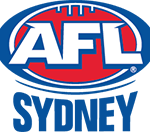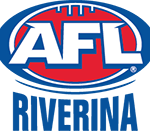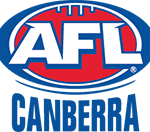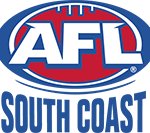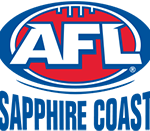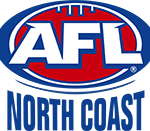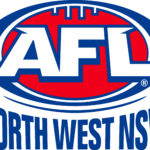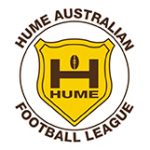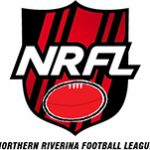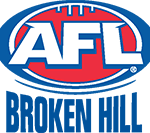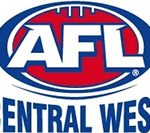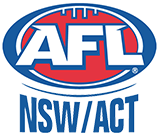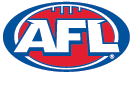NSW/ACT Player of the Week: Brent Staker

By Alison Zell
Brent Staker hadn’t played an AFL game for almost a year-and-a-half when he lined up for the Brisbane Lions in their clash against Essendon last month.
But in one of the fairytale moments of the year, it was Staker who had the chance to seal an upset victory for the Lions with a shot from 45m out on the boundary line, 29 minutes into the last quarter.
Staker nailed the shot and secured a famous victory for the Lions.
“It was a massive hive of emotion, you can’t script those things, and it’s funny how it happened,” Staker said.
“The game itself was a classic game, it was a very tight and intense game and I felt like I played well … I had to adapt to the speed and the pace of the game and how much harder it’s become so it was very eye-opening.
“And then obviously to receive a free kick with a minute-and-a-half to go and to kick the goal to seal our victory, it was definitely I’ll always cherish later on in life.”
Staker was born in Broken Hill in rural NSW, a big AFL town in close proximity to the South Australian border.
“The AFL code superseded rugby and basketball and everything else in town,” he said.
“Broken Hill’s only four teams – West, South, North and Central – so there are very talented names but it’s very isolated and everyone knew each other’s game plans.”
He made his A Grade debut in 2000 at age 15 for West Broken Hill – the club at which his father Alan holds the record for most senior games played – playing in their losing grand final side that year before making the decision to move by himself to Canberra for a shot at playing in the AFL.
“It was a bit of a path to get selected, the NSW system was pretty good, it gave us all opportunities in Broken Hill,” Staker said.
“There were development squads and the like just to keep young kids interested in football and give them the chance to be seen.
“It was pretty sad leaving home … I left home at 16 to live with a family in Canberra and sort of did the hard yards there – I went to school for a year and then I was a greenkeeper for the following year.”
Staker made the decision to move away from Broken Hill after the Under-16s National Championships in Tasmania in 2000 where he impressed and was spoken to by several clubs.
At this point the NSW/ACT state side, the NSW/ACT Rams, were part of Victoria’s TAC Cup competition, playing each week against the top Under-18 teams in Victoria.
“I was lucky enough to be involved with that, the last two years they played in the TAC Cup actually, so I got to play in the last two years of the program and really relished living in Canberra,” he said.
“I was recruited to the Canberra base which was sort of the main base and spent two years there training and working on my game.
“It wasn’t a huge gamble as such but a huge worry … If footy doesn’t work out, is this going to be good at such a young age?
“You miss all your friends and your family but there’s got to be a benefit because you’re out of your comfort zone and you’re going to learn something about yourself.
“Luckily for me I learnt how to self-survive and how to enjoy my own company and adapt to new situations.
“It was very tough, it wasn’t easy but I just kept thinking all these hard yards, there’s got to be some rewards down the track.”
The reward came when he was drafted to the West Coast Eagles in the 2002 National Draft, selected at pick 37.
He made his debut in 2003 and played 17 senior matches in his second season, earning an AFL Rising Star nomination for a three-goal performance against Melbourne.
He was a member of West Coast’s losing Grand Final side in 2005 but missed the Eagles’ 2006 premiership triumph after he was dropped from the side after their Qualifying Final win.
After 110 games and 84 goals throughout his seven-year career with West Coast, he managed just six matches in 2009 and requested a trade east.
“That was another very hard process, being traded in the AFL is not easy,” Staker said.
“When your older you’re a lot more stubborn and sort of set in your ways, you don’t like to adapt … It’s very hard because we’re creatures of habit and once you dig your heels into a city and make a lot of friends you sort of don’t want to leave them.
“Unfortunately I was at the crossroads of my career and decided to move on and haven’t looked back.”
Staker describes his time at the Lions as “colourful” with some of the best football he has played, and some of the worst injuries he has suffered.
“There have been some good times, a few interesting times and a few bad times,” he said.
“The good times were 2010 which was a terrific year for me, I felt like I played some good football and adapted to the new team and structures well and then unfortunately 2011 was riddled with a few injuries and then 2012 I didn’t even set foot on a footy oval.
“The last few years I’ve just sort of been tested mentally and body-wise so it’s been colourful.”
During his time out of game, Staker kept busy. In both 2011 and 2012, he coached the Lions’ reserves side in the NEAFL Northern competition and was the senior team’s forward coach. Around the club, he kept his chin up despite the frustrations of two years of constant rehab.
“I was based with the reserves team wherever they flew or when they were in Brisbane and took the role on there and learned a lot again – learned a lot about the forwards and the running patterns and trying to help the young kids.
“(I was) giving them stuff to work on or giving a different insight into how I see things so I felt like I contributed in 2012 with the younger boys.”
By Round 8 this year, Staker was finally able to set foot back on a football field, and did so with a bang.
“It was just another game of footy but for me it was a reward for the hard work of the last couple of years.”
